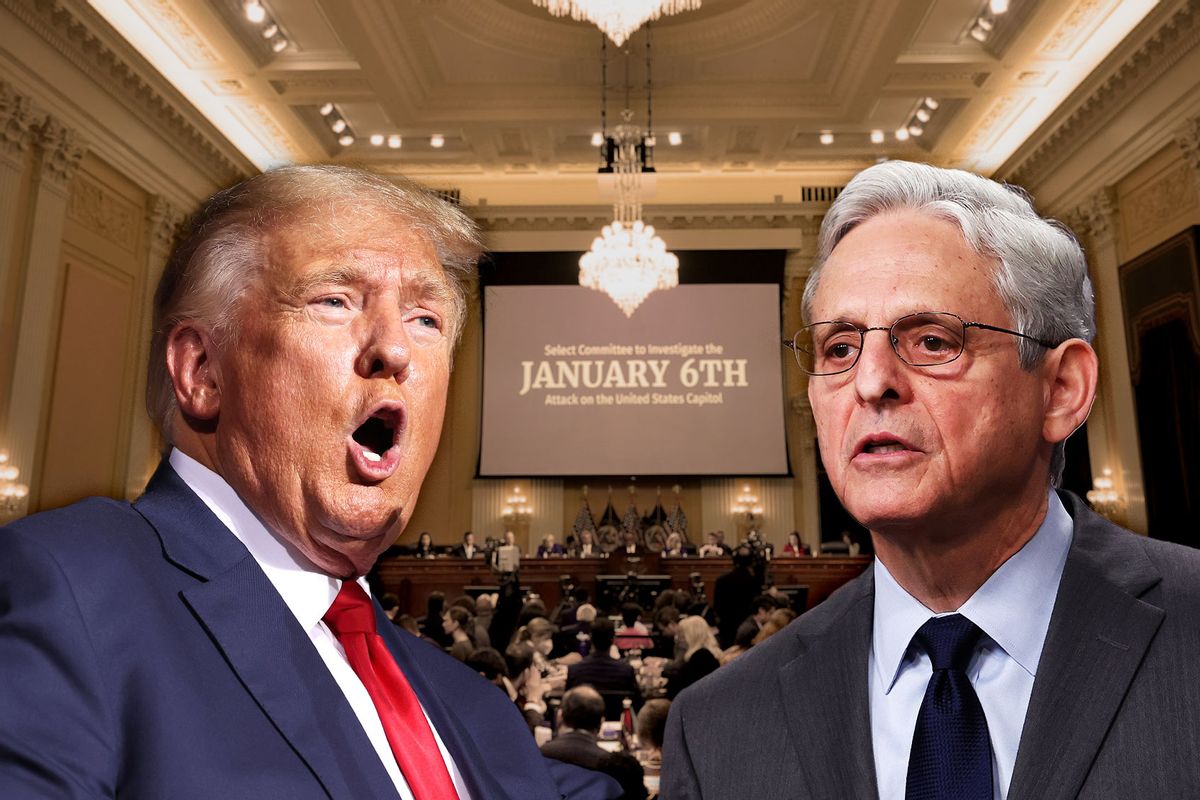Following the final hearing of the congressional investigation into the Jan. 6, 2021, attack on the U.S. Capitol, the evidence is overwhelming: The Department of Justice must bring criminal charges against Donald Trump and many others for their culpability for the attack. The evidence of criminal conduct by the former president is so strong, and the offenses so consequential to the continued viability of American democracy, that indictment is the only appropriate outcome — and I believe the DOJ will indict.
The select committee's public hearings, which culminated Oct. 13, made clear how Trump and his allies planned and executed a conspiracy to overturn the will of the American people. The committee demonstrated that Trump and those around him knew he had lost the 2020 presidential election but nevertheless pushed false election fraud claims to justify their efforts to overturn the results. The committee explained how Trump and his allies illegally pressured Vice President Mike Pence to overturn the will of the people, illegally pressured and harassed Arizona and Georgia legislators and election workers to do the same, and pressured the Department of Justice to legitimize election fraud lies to create a false pretext for overturning the election.
The committee further demonstrated that Trump's allies were in touch with violent extremist groups to plan the "Stop the Steal" rally on the morning of Jan. 6, that Trump had clearly specified that date for mob action in a tweet — after a marathon meeting with lawyers made clear that other options to overturn the election were not promising — that Trump sent a mob he knew to be armed to the Capitol to stop the peaceful transfer of power, and that he anticipated, incited and encouraged the violence that occurred on Jan. 6.
While the question of whether to indict a former president yields few easy answers, there is only one that is just: Trump must face criminal charges for his efforts to defraud the American people of their right to elect a president.
Bringing federal charges in any case requires as a threshold matter that a prosecutor determine that the defendant's conduct constitutes a federal offense and that there is sufficient evidence to sustain a conviction. Thanks in part to the committee's work, we know there is overwhelming evidence that Trump participated in a conspiracy to defraud the United States and obstructed an official proceeding of Congress — just two of the offenses that federal prosecutors are likely considering. Charging Trump would also meet other requirements, including that it serve a substantial federal interest. Other relevant considerations would support charging Trump too: Few imaginable federal offenses could be more serious than a criminal conspiracy to unlawfully remain in power. Trump was at the center of the various efforts to remain in power, and he has fought the DOJ's efforts to investigate the Jan. 6 attacks.
Want a daily wrap-up of all the news and commentary Salon has to offer? Subscribe to our morning newsletter, Crash Course.
The prosecution of a former president is clearly no standard criminal case. Attorney General Merrick Garland and his department may feel pressure to decline prosecution because of the likelihood that charging Trump would prove contentious and the possibility that doing so might exacerbate partisan political divisions, or even lead to violence. Those advocating for forbearance often cite Gerald Ford's pardon of Richard Nixon as a model that should inform the present.
That logic is misguided for three reasons:
First, Trump has yet to face any consequences for his criminal efforts to retain power against the will of the American people. After the Watergate investigations exposed Nixon's crimes, he resigned the presidency in disgrace and never sought public office again. Trump by contrast, is not in exile — he is emboldened. He remains the de facto leader of the Republican Party and is reportedly preparing to run for president again in 2024. Under Trump's leadership, the party has embraced, not renounced, the Jan. 6 attack: At least 291 Republican candidates running for Congress or statewide office this year have denied the legitimacy of the 2020 presidential election. The election denialism that Trump fomented and still propagates today will go unchecked if charges are declined.
Second, Trump is going to continue breaking the law until he is held accountable. Since he first ran for president in 2016, Trump has been credibly accused of at least 55 crimes. That record includes his attempts to obstruct the investigation of Russian interference in the 2016 election, his efforts to pressure Ukraine to open a sham investigation into Joe Biden in 2019 and his unauthorized possession of sensitive government records at Mar-a-Lago.
Finally, prosecuting Trump represents a critical opportunity to reaffirm that it is unacceptable to interfere with the peaceful transfer of power–a defining feature of American constitutional democracy. Ultimately, Garland understands this, as well as the strength of the evidence. That's why I believe he will act. The way to protect our democracy is to hold accountable those who sought to destroy it — including the former president.
Read more
about Donald Trump's legal problems



Shares